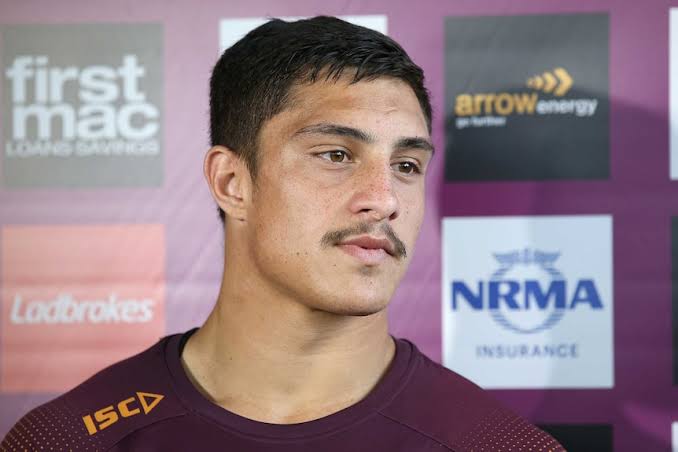In the lead-up to State of Origin Game II, a storm erupted around Queensland Maroons coach Billy Slater following controversial comments he made referencing the late Paul Green. Green, who tragically took his own life in 2022 and was later found to have chronic traumatic encephalopathy (CTE), was briefly invoked by Slater during a media appearance meant to address criticism from former New South Wales prop Aaron Woods.
Slater had been under significant pressure after Queensland’s Game I loss and criticism of his decision to drop veteran halfback Daly Cherry-Evans. During a press conference, Slater suggested that comments like Woods calling him a “grub” could potentially have serious consequences, implying the weight of public scrutiny can deeply impact those in high-profile positions. This drew immediate backlash, as many viewed the reference to Green’s death as unnecessary and inappropriate.
Recognizing the gravity of the situation, Slater quickly issued a public apology. Speaking to reporters in Perth, he admitted he had made a serious error by linking Green’s death to the stress of coaching. He emphasized that CTE—a degenerative brain condition—was not the same as mental stress from public commentary or coaching duties. Slater shared that he had personally contacted Green’s widow, Amanda, to express his remorse and apologize directly.
“I feel terrible about what I said,” Slater told the media. “Paul had CTE. It’s a different disease to what I was referring to… I’m deeply and genuinely sorry.”
Green’s family responded with grace. His brother Rick issued a statement to The Sydney Morning Herald saying they regretted Paul’s name being used in this context but appreciated Slater’s apology and accepted it. Rick emphasized their family’s ongoing respect for Queensland and those representing the state, despite the pain stirred up by the comments.
Meanwhile, Aaron Woods returned to Triple M radio and reacted to the unfolding controversy. He acknowledged that Slater was in a tough spot following Origin Game I but stood by his view that the coach overstepped by bringing Green into the conversation. “One particular comment he made… was completely unnecessary,” Woods said, adding that being a public figure means being open to criticism, especially in a results-driven sport.
Slater, in a fiery exchange at the official captain’s call, addressed Woods’ remarks again. He called out the responsibility that comes with a media role in rugby league, pointing out that public figures must be careful with their words due to their wide-reaching influence. The Queensland coach said Woods had acted respectfully in person just weeks earlier but took a different tone on-air, implying a lack of integrity.
“You amplify your voice to millions of people—you’re not just talking to your mates at the pub,” Slater said. “When you degrade someone personally in a derogatory manner, you probably don’t deserve one of those privileged positions.”
His speech drew applause from some in attendance, but he wasn’t done. Slater added that while he may have the resilience to handle personal jabs, others might not—again alluding to the emotional toll criticism can take, albeit more carefully this time. “You don’t know what people are going through,” he said. “Maybe our last coach didn’t.”
Veteran commentator Andrew Voss joined the chorus of concern, stating on SEN Radio that Slater’s invocation of Green was inappropriate. “He went too far,” Voss said, noting that the coach should have limited his response to himself without dragging others into it, especially those no longer alive to speak for themselves.
Former NRL great and media personality Matty Johns also weighed in, acknowledging that while Woods’ comments may have been intended to spice up the Origin build-up, they did cross a line. “Once you say something personal about someone, you hand them the right to respond,” Johns said. “Billy’s certainly used that right in a strong way.”
Johns suggested that although Woods may have intended his “grub” label as a light-hearted jab, it had clearly been taken more seriously by Slater. The former playmaker added that in the modern game, where media narratives hold significant power, players and commentators alike need to tread carefully.
Cameron Munster, Queensland’s captain and long-time ally of Slater from their shared Melbourne Storm days, defended his coach. He admitted the comments had hurt the squad but used the moment as motivation. “When you’ve got a guy like Billy Slater as your coach and what he’s done in the game, it does hurt a little bit,” Munster said. “He’s copping a lot of slack, but he’s doing everything he can. We need to stand up for him.”
The fallout from Slater’s remarks and the broader verbal exchanges leading into Game II have dominated rugby league headlines, overshadowing much of the pre-match analysis. The tension between media personalities, former players, and current coaching staff reflects a broader conversation in sport about the intersection of criticism, mental health, and respect for those who have suffered or are suffering.
While Slater’s words initially sparked controversy, his quick and heartfelt apology, accepted by Green’s family, helped cool tensions. Still, the episode served as a potent reminder of the delicate line public figures must walk when addressing sensitive issues—especially when it involves the memory of someone like Paul Green, whose legacy continues to touch the game and those who knew him.
The 2025 State of Origin series continues to deliver drama not just on the field, but off it. As the teams prepare for Game II, the incident adds emotional weight to an already high-stakes contest. Slater now not only carries the burden of results on the scoreboard, but also the pressure of ensuring he leads with dignity and emotional intelligence—qualities his players appear ready to rally behind.



